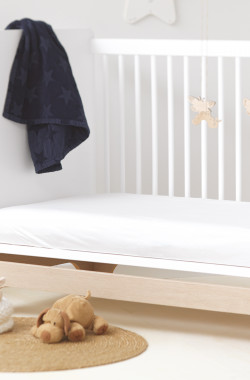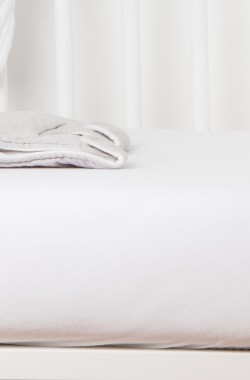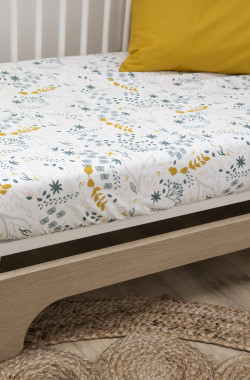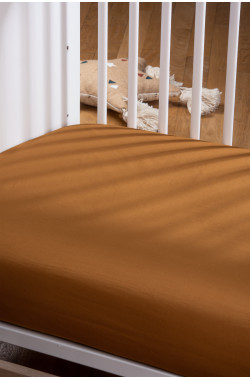
How to donate, recycle and reuse your bedding in Quebec ?
Bedding is one of the most used items in a home, yet it is often overlooked when it comes to recycling. Sheets, pillowcases, blankets and duvet covers can become worn and stained. Instead of tossing them in the trash, consider recycling or donating them to do a good deed! In this article, we'll give you some tips on where and how to recycle your bedding.
Where to recycle your bedding?
- Local recycling centers: Many local recycling centers accept bedding as a recyclable item. You can check online or contact your local recycling center directly to see if they accept bedding. They may only accept certain materials, such as cotton or linen. Don't be afraid to ask for advice before dropping off your items.
- Thrift stores: Thrift stores often accept sheets and blankets in good condition for resale. If your items are still in good condition but you no longer need them, consider donating them to a thrift store instead of throwing them away.
- Charitable organizations: Charities such as the Red Cross, shelters or homeless organizations often accept donations of bedding in good condition.
- Online recycling sites: There are many online recycling sites that accept donations of bedding. You can find these sites by searching online or by contacting your local recycling center.
If you don't know how to recycle a product, or would like ideas for associations that might need your used items, the Quebec government has created an app that can help. Called Ca Va Où, the application allows you to quickly and easily search for where to recycle your products and where to donate, depending on where you live.
At Kadolis, we sometimes receive products that are damaged or have quality defects. This may be the case after returns from our customers. When this happens, we donate these items to partner organizations. Unlike some big brands, we strongly refuse to destroy these items, even if they sometimes have minor aesthetic defects. In February 2023, we donated organic cotton fitted sheets to the Montreal association Entre Mamans et Papas, which helps future and young parents in difficulty. Our sheets were distributed to families in need.
How do you recycle your bedding?
- Reuse it: If your bedding is still in good condition but you no longer need it, consider reusing it for other purposes. Blankets and sheets can be used to make pillows, curtains, tablecloths, beach towels, etc.
- Transform them: If you have sewing skills, you can transform your old sheets and blankets into something new and useful. For example, you can make reusable cloth bags, cleaning rags, or even clothing.
- Donate: If your bedding is too worn out to be reused or repurposed, you can always recycle it. Local recycling centers or online recycling sites often accept used textiles to make new products such as insulation, stuffing, etc.
In summary, bedding can be recycled in a variety of ways, whether it's by reusing, repurposing or recycling. By finding ways to recycle your bedding, you can help reduce waste and protect the environment. Think about it the next time you consider throwing away your old sheets and blankets!
When should you consider changing your bedding?
Bedding does not last forever. Over time, sheets can become less soft and, in some cases, tear or stain. In general, percale sheets are more durable and resistant than jersey sheets. It is the way the thread is woven that makes percale higher quality. Linen and organic cotton are also more durable than lyocell, which is more fragile.
In general, we recommend replacing your bedding every 5 years or so (depending on the condition of your sheets and how often you use them, of course).
How do I buy bedding that will last?
If you're in the market for new bedding and want to continue your sustainable approach, there are a few certifications to look for when shopping. Here are a few:
- The Global Organic Textile Standard, or GOTS. It certifies that the cotton used is organic, and it goes even further! To be GOTS certified, companies must meet a number of strict criteria, including waste management within the company, fair compensation for workers, accurate traceability of products from raw material harvest to final sale, etc.
- OEKO-TEX® Standard 100 for chemical safety in textile production.
Kadolis is proud to offer GOTS and OEKO-TEX® certified organic bedding products.
With transparency and a focus on the safety of minis, we are proud to offer quality, sustainable and eco-friendly products. All of our products are made in Europe for greater control over manufacturing and product quality.
Explore our bedding products now!
















